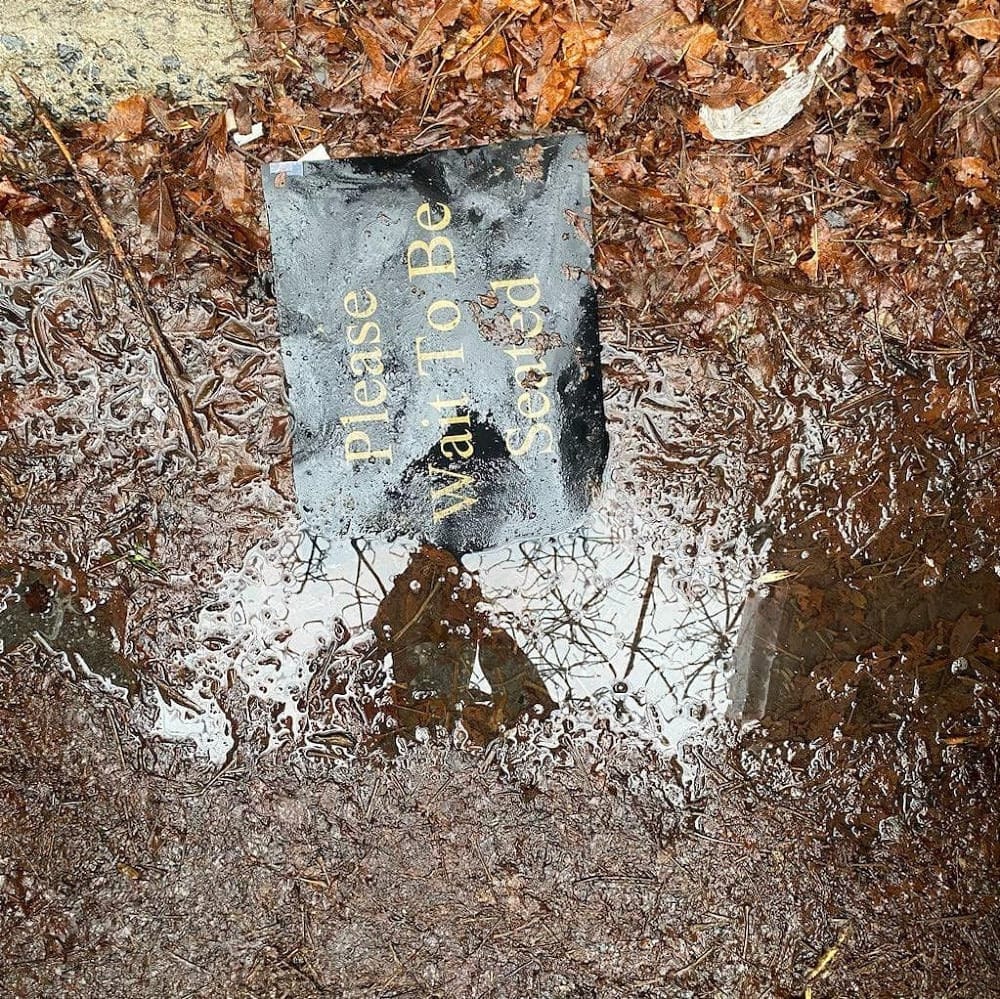we're all assistant managers now

To note that the wEsTeRn DeMoCrAcIeS are nothing close to the “honest brokers” they’ve spent decades trying to portray themselves as isn’t really much of a statement, is it? I mean, it feels like an assault on language itself to play along with that characterization when their actions all run so clearly to the contrary. That’s easy. What seems to linger, though, is the shared notion that, given their international stature or whatever it is, they somehow still ought to be: that in failing to embody some ostensible political maturity, they’re derelict in a duty to stay above the fray and to usher conflict and violence toward the realm of civil discourse (that place where responsible politics happens). As a sort of positioning system, one that corresponds to extant global power arrangements, it's easy to see the continuity with 19th-century imperialist fantasies of racial superiority and benevolence. As a heuristic, it works to affirm liberal politics as a normative triumph – a politics which, as we know, functions based on an ostensible disavowal of the vicious material inequalities that actually constitute and maintain these societies, right?
There's another kind of neurotic normativity baked into this latter framing as well, I think, a projection of how individuals are meant to mould themselves into good political subjects. Generally speaking I think it's a trap to equate the actions of individuals with those of states, but I think it's useful here to see it as part of a conditioning that works at multiple scales. "We" – another trap, of course – are meant to believe that, as individual actors as well as larger political blocs, we ought to take the posture of mediator rather than stakeholder, observer rather than participant, and legitimate the assumption that political thinking happens best at a distance from concrete implication in the muck of social and economic life. We abstain from taking sides – lest we’re accused of “extremism,” that bête noire of the good liberal – and instead imagine ourselves as the adults in the room, guiding the arguing brutes towards the most rational resolution to their grievances. Sides, if ever taken at all, are understood as intellectual positions rather than material ones, without real stakes and without history.
This is a fairly standard account, I think, of what happens when (neo)liberalism works its magic on political subjectivity, and I think it speaks more broadly to that great terminal contradiction that's inherent to the whole project of the bourgeois "West": societies fundamentally structured by dispossession and exploitation imagine themselves instead to be governed by logic and universalist ethics, and we really commit to the bit in behaving as though the world actually works that way. You can see it in operation all over the place right now, as everyone's fucking uncle steps up to register their opinion on what should be done about the genocide currently unfolding in Palestine. Cooler heads call for "peace" without demanding any kind of justice or reparation, and advocate for "dialogue" as though the conflict were about different perspectives rather than asymmetrical martial capacities overlaid on a globalized system of racial apartheid. Material power relations are obscured behind a conception of politics as essentially a set of speech acts. Meanwhile, the official count of people killed in Gaza since October 7 has surpassed 22,000.
Anyways. Much gratitude to DZ for helping me figure out what I'm thinking, and to everyone out there fighting the fight. Here's some songs for trying to stay embedded in the social.
It's a fairly low-key soundscape this time, most of what’s here falling within that Venn diagram where contemporary classical meets drone meets ambient, and all of it pretty well suited for the cold winds headed our way over the coming weeks, I think.
First it’s an excerpt from prolific experimental composer and sound artist Lea Bertucci’s latest LP, Of Shadow and Substance. On “Vapours,” Italy’s Quartetto Maurice, tuned to just intonation, work up a swirling and expressive sound sculpture that holds a really glorious tension between stasis and fluctuation; as the Quietus put it, “Tenebrous drones and dazzling stabs all gush together like merging seas.” It's followed by a new orchestral piece from Ottawa comrade and DIY lifer Mark Molnar, the melodic core of which is stretched out across a broad field of empty space, allowing each cluster of chords to sort of collapse into each other before dispersing back into the empty space. Mark's work is deeply studied and precisely composed, yet ardently prioritizes expressiveness and warmth over academic bluster (entirely in keeping with the almost notorious kindness and generosity with which the man conducts himself, by the way). Then it’s “Beautiful Crisis,” from Flora Yin Wong’s Cold Reading LP, which combines a cavernous melodic wash with a plaintive twinkle of plucked strings in the foreground; and “Ebla” from Faten Kanaan’s Afterpoem, an eerie and cinematic synthscape with tones that, to my ears, beg comparison to Wendy Carlos’ soundtrack to A Clockwork Orange. Next its ZONDERWERK, a Belgian duo crafting sound for art installations and theatre pieces, in this case a woozy late-night walk home through a disintegrating city; and wrapping up the front half is Berlin-based guitarist Jules Reidy – “one of their instrument’s most restlessly inventive interpreters,” according to one Philip Sherburne. Their new LP Trances is another quite masterful foray into just intonation – watch for how the at-first unfamiliar dissonance quickly turns into a kind of calming bedrock drone – and feels loose and open-ended while clearly still wound around a tight compositional core, as organic and it is alien.
As a sort of intermission, there’s a brief snippet from Tashi Dorji’s latest set of stunning nylon string guitar improvisations. You’ll perhaps have noticed how often Dorji and his projects have shown up here over the last while, which is testament to how adroitly he’s able to wring all kinds of new timbres out of his instrument while offering such compelling and lyrical performances – a genuine guitar hero, I’d say.
The back half is kicked off with “Earthbound," an offering from Laurel Halo’s slow-moving and impressionistic latest LP, Atlas, which creates cloudy palimpsests of sound from dense layers of strings and saxophone alongside atmospheric synth pads and found sounds. It's followed up by a frosty and melancholic reflection on climate change as seen from the antarctic, courtesy of anonymous contemporary classical project Glåsbird; if not in every one of its aesthetic details, the vibe on offer here recalls early records from Richard Skelton, which I’d highly recommend checking out if you find this one pushes your buttons. Next it’s Jessica Moss (NB: see below!), with a piece included in the second volume of 7K! Records’ compilation of new string compositions (and there's a ton of other great stuff on there). “Trapped Cycle” certainly does evoke an enclosed space, Jessica's instantly recognizable violin building walls of reverb punctuated by an anxious lead that seems to expand and contract as we progress; it feels a bit like the dizziness of turning in circles trying to track a firefly. Then it's an excerpt from Daughter, released in 2022 by Raum, a once-a-decade collaboration between Liz Harris (Grouper, that is) and Jefre Cantu-Ledesma, two of my (and everyone's) favourite contemporary music-makers. They've both been steadily releasing a somewhat intimidating volume of genre-defining and -defying work since the late 2000s – for the uninitiated, stop what you're doing and listen to Dragging a Dead Deer Up a Hill and/or Love Is A Stream right now. "Restoration" is a humble, patient, utterly gorgeous workout in what they both do best: setting elegant and emotive melodic figures against epic amounts of reverb, static, found sounds and so on, placing the immediacy of the song's core at a kind of distance from the listener (and in turn opening up a huge amount of space for the experience of the music and in which to reflect upon it). Finally, we have Montreal-based ensemble Quatuor Bozzini showcasing a long-form composition they recently commissioned from legendary French composer Eliane Radigue. Known primarily for her electronic work going back decades, in recent years she’s has been moving towards work for live instrumentation, and here we close with an excerpt of the buoyant 40-minute drone for three violins and a cello that is “Occam Delta XV.”
Okay that’s it!
• Mixcloud: we're all assistant managers now (jan 2024)
• MP3's: 24/01 - we're all assistant managers now.zip
NB: For those of you in Montreal, on Thursday, January 18, Jessica Moss will headline a benefit show at Sala Rossa, supporting legal defence for Montreal-based organizers facing legal repression for Palestine solidarity work. Also on the bill are Sam Shalabi doing a solo oud performance and Aspirateur, the guitar/sax duo of Mathieu Ball and James Goddard, and if we're lucky the night will end with some DJs and a bit of a dance party. It's going to be a really lovely night of music, for an obviously good cause. Doors 19h, show 20h. Facebook event right here if that's your thing. Resistance until liberation! Come out!
Thanks friends!
xo, graham
